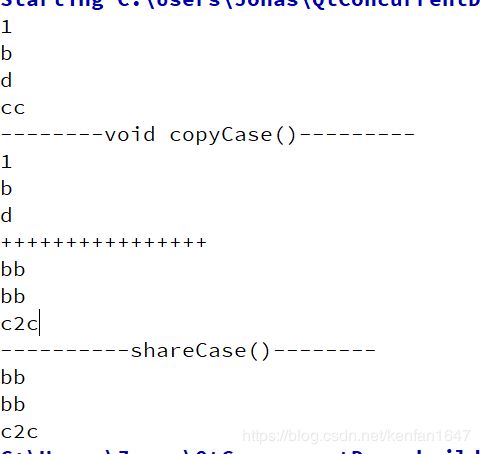- sqlmap笔记
君如尘
网络安全-渗透笔记笔记
1.运行环境sqlmap是用Python编写的,因此首先需要确保你的系统上安装了Python。sqlmap支持Python2.6、2.7和Python3.4及以上版本。2.常用命令通用格式:bythonsqlmap.py-r注入点地址--参数-rpost请求-uget请求--level=测试等级--risk=测试风险-v显示详细信息级别-p针对某个注入点注入-threads更改线程数,加速--ba
- 笔记:代码随想录算法训练营day60:并查集理论基础、寻找存在的路径
jingjingjing1111
笔记
本文为学习并查集理论基础|代码随想录、代码随想录过程中的思考find是找的顶头上司,而不是当前上司,最后怎么也得找到一个顶头上司的上司是自己,要不然这个结构也不成立使用issame替换会使被操作者为当前节点,而非根节点。join(u,v)的功能为将v的根节点挂到u的根节点下模拟过程可以看出,join中的find中的路径压缩要在长度大于2(路径大于1)的时候才会体现出来107.寻找存在的路径卡码网题
- 计算机基础:编码04,认识反码和补码
水饺编程
MFC学习笔记Win32学习笔记windowsc++mfcc语言
专栏导航本节文章分别属于《Win32学习笔记》和《MFC学习笔记》两个专栏,故划分为两个专栏导航。读者可以自行选择前往哪个专栏。(一)WIn32专栏导航上一篇:计算机基础:编码03,根据十进制数,求其原码回到目录下一篇:无(二)MFC专栏导航上一篇:计算机基础:编码03,根据十进制数,求其原码回到目录下一篇:无本节前言在前两节,我讲解了关于原码的知识。本节,我来讲解反码和补码。在学习本节之前,你需
- Python爬虫笔记一(来自MOOC) Requests库入门
小灰不停前进
#Pythonpythonpycharm爬虫
Python爬虫笔记一通用代码框架:importrequestsdefgetHTMLText(url):try:r=requests.get(url,timeput=30)r.raise_for_status()#如果状态不是200,引发HTTPError异常r.encoding=r.apparemt_encodingreturnr.textexcept:return"产生异常"if__name_
- 论文阅读笔记——MAGICDRIVE: STREET VIEW GENERATION WITH DIVERSE 3D GEOMETRY CONTROL
寻丶幽风
论文阅读笔记论文阅读笔记3d人工智能自动驾驶
MagicDrive论文MagicDrive通过对3D数据和文本数据的多模态条件融合和隐式视角转换,实现了高质量、多视角一致的3D场景生成。几何条件编码Cross-attention:针对顺序数据,适合处理文本标记和边界框等可变长度输入。Additiveencoderbranch:对于地图等网络状规则数据,能够有效保留空间结构。对于文本按照模版构建:“Adrivingsceneat{locatio
- 【笔记】扩散模型(五):Classifier-Free Guidance 理论推导与代码实现
LittleNyima
DiffusionModels笔记机器学习深度学习
论文链接:Classifier-FreeDiffusionGuidance上一篇文章我们学习了ClassifierGuidance,这种方法通过引入一个额外的分类器,使用梯度引导的方式成功地实现了条件生成。虽然ClassifierGuidance可以直接复用训练好的diffusionmodels,不过这种方法的问题是很明显的,首先需要额外训练一个分类器,而且这个分类器不仅仅分类一般的图像,还需要分
- 《面向模式的软件体系结构3-资源管理模式》读书笔记(7)--- Coordinator模式
weixin_33699914
人工智能
3.3Coordinator模式Coordinator(协调者)模式描述了如何通过协调涉及多个参与者(每个参与者都包含资源、资源使用者和资源提供者)的任务的完成来维护系统的一致性。这个模式提出了一个解决方案,使得在涉及多个参与者的任务中,或者所有参与者的任务都完成,或者一项任务都没有完成。这确保了系统总是处于一致的状态。1.问题很多系统都会执行涉及不止一个参与者的任务。一个参与者是一个主动实体,既
- 图像质量评价学习笔记02:IQA模型性能评价指标(PLCC、SROCC、KROCC、RMSE)
可靠的豆包蟹同志
图像质量评估IQA图像处理计算机视觉人工智能算法
性能好的图像质量评价(IQA)算法,其质量评测分数会与主观质量分数高度一致,IQA有许多评价指标,为了衡量方法测试结果与主观评价之间的一致性,视频质量专家组VQEG(VideoQualityExpertsGroup,目前国际上对视频质量进行标准化及性能测试的权威组织)提出了四个可以验证客观评价结果和主观评价结果之间的紧密程度的四个指标:PLCC、SROCC、KROCC和RMSE,也是目前最常用的I
- 计算机基础:编码01,无符号数编码
水饺编程
MFC学习笔记Win32学习笔记mfcc++visualstudiowindows
专栏导航本节文章分别属于《Win32学习笔记》和《MFC学习笔记》两个专栏,故划分为两个专栏导航。读者可以自行选择前往哪个专栏。(一)WIn32专栏导航上一篇:计算机基础:二进制基础13,十六进制与二进制的相互转换回到目录下一篇:计算机基础:编码02,有符号数编码,原码(二)MFC专栏导航上一篇:计算机基础:二进制基础13,十六进制与二进制的相互转换回到目录下一篇:计算机基础:编码02,有符号数编
- RK3588开发笔记-DDR4降频实战与系统稳定性优化
flypig哗啦啦
RK3588DDR
目录前言一、DDR变频原理与工具准备1.1DDR变频机制1.2工具链配置二、DDR降频操作步骤2.1找到RK3588DDR默认bin文件2.2修改DDRbin文件频率三、进阶优化与调试3.1温控策略调整3.2电源设计优化四、常见问题与解决方案总结前言RK3588作为瑞芯微旗舰级SoC,其DDR4/LPDDR4X内存接口最高支持2112MHz频率,但在实际开发中,高频可能导致系统不稳定或功耗过高。例
- 先验地图--slam学习笔记
超级璐璐
人工智能机器学习
先验信息(PriorInformation)先验信息指的是在收集新数据之前已有的知识或假设。这种信息可以来自之前的实验、历史数据、理论模型或专家意见。地图信息:在无人驾驶中,车辆通常会预先加载高精度地图数据,这些地图数据提供了道路布局、车道线位置、交叉口结构等信息。这些信息就是先验信息。车辆动力学模型:车辆的动力学模型,包括车辆的物理特性(如质量、轮胎摩擦系数等),这些模型可以帮助预测车辆的行为。
- 计算机网络笔记(四)——1.4计算机网络在我国的发展
xiao--xin
计算机网络计算机网络笔记面试学习
一、早期探索与奠基(1980-1994年)国际联网的起点1986年:中国启动首个国际联网项目“中国学术网(CANET)”,由北京计算机应用技术研究所与德国卡尔斯鲁厄大学合作,目标是实现电子邮件通信。1987年9月20日:中国发出第一封电子邮件《越过长城,走向世界》,标志着中国首次接入国际互联网。科研网络的突破1989年:中关村地区教育与科研示范网络(NCFC)立项,由中国科学院、北京大学、清华大学
- 软考 中级软件设计师 考点知识点笔记总结 day06
莫问alicia
软考中级软件设计师笔记数据结构算法
文章目录6、树和二叉树6.1、树的基本概念6.2、二叉树的基本概念6.3、二叉树的遍历6.4、查找二叉树(二叉排序树)BST6.5、构造霍夫曼树+6.6、线索二叉树6.7、平衡二叉树7、图7.1、存储结构-邻接矩阵7.2、存储结构-邻接表7.3、图的遍历7.4、拓扑排序7.5、最小生成树普利姆算法7.6、克鲁斯卡尔算法6、树和二叉树6.1、树的基本概念结点的度:一个结点的度是指该结点拥有的子树数量
- python 底层原理processpoolexecutor_Python 并发编程:PoolExecutor 篇
风投小虾
python
个人笔记,如有疏漏,还请指正。使用多线程(threading)和多进程(multiprocessing)完成常规的并发需求,在启动的时候start、join等步骤不能省,复杂的需要还要用1-2个队列。随着需求越来越复杂,如果没有良好的设计和抽象这部分的功能层次,代码量越多调试的难度就越大。对于需要并发执行、但是对实时性要求不高的任务,我们可以使用concurrent.futures包中的PoolE
- 环境配置(1):笔记本window、虚拟机ubuntu、开发板三者互ping通信,并且虚拟机ubuntu和开发板能上网
lishing6
ubuntulinuxmcu嵌入式硬件arm开发物联网硬件工程
1.配置网络我们配置网络是为了方便后续调试开发板系统或者应用程序时,能够使用tftp协议nfs协议等拷贝文件,以及设置文件系统启动方式为nfs挂载启动。2.设置Ubuntu使用NAT网络NAT是什么意思?NetworkAddressTranslation,网络地址转换。举个例子,在NAT里,Windows就是一个爱护孩子的父亲,Ubuntu就是受保护的小孩。小孩要买东西,都由他父亲代劳,别人根本不
- systemd-networkd 的 *.network 配置文件详解 笔记250323
kfepiza
网络通讯传输协议物联#控制台命令行Shell脚本shcmd等#LinuxCentOSUbuntu等笔记tcp/ip网络linux
systemd-networkd的*.network配置文件详解笔记250323查看官方文档可以用mansystemd.network命令,或访问:https://www.freedesktop.org/software/systemd/man/latest/systemd.network.html名称systemd.network—网络配置概要network.network描述一个纯INI风格的
- systemctl restart 和 systemctl reload 和 systemctl daemon-reload 对比 笔记250322
kfepiza
#LinuxCentOSUbuntu等#控制台命令行Shell脚本shcmd等笔记bash
systemctlrestart和systemctlreload和systemctldaemon-reload对比以下是systemctlrestart、systemctlreload和systemctldaemon-reload的对比总结:命令作用对象行为适用场景对服务的影响systemctlrestart服务名具体服务强制停止服务,再重新启动。配置或代码有重大变更,或服务出现异常需完全重启。服
- Xilinx系ZYNQ学习笔记(二)ZYNQ入门及点亮LED灯
贾saisai
FPGA学习学习笔记fpga开发
系列文章目录文章目录系列文章目录前言简单介绍简称xc7z020型号FPGAZYNQ实操通用IO点亮LED灯硬件逻辑基础前言简单入门一下ZYNQ是何种架构,如何编程,至于深入了解应该要分开深入学习Linux和FPGA简单介绍其基本架构都是在同一个硅片上集成FPGA和CPU,并通过高速、高带宽的互联架构连接起来。ARM的顺序控制、丰富外设,开源驱动、FPGA的并行运算、高速接口、灵活定制、数字之王的特
- ZYNQ学习笔记_GPIO之输入输出
凌星星星星星
ZYNQ学习笔记gpiomiofpga嵌入式单片机
ZYNQ学习笔记_GPIO之输入输出GPIO介绍MIO介绍EMIO介绍控制GPIO接口的寄存器原理_输入输出部分GPIO介绍GPIO的英文全称为General-purposeinput/output,即一种通用外设,可以通过MIO(MultiuseI/O)模块对器件的引脚做观测(input)和控制(output)。ZYNQ的PS端上的GPIO也可以通过EMIO(ExtraMIO)模块对PL端的IP
- zynq设计学习笔记2——GPIO之MIO控制LED实验
墨漓_lyl
FPGA之zynq设计学习笔记嵌入式fpga
vivado软件操作步骤与学习笔记1——helloworld差不多,这里不再过多赘述,不同点是在zynq的设置中添加上GPIO的设置即可。进入SDK软件后,程序如下:#include"stdio.h"#include"xparameters.h"#include"xgpiops.h"#include"sleep.h"#defineGPIO_DEVICE_IDXPAR_XGPIOPS_0_DEVIC
- Ubuntu-Server 设置多个ip和多个ipv6 笔记250320
kfepiza
#LinuxCentOSUbuntu等#控制台命令行Shell脚本shcmd等网络通讯传输协议物联ubuntutcp/ip笔记
Ubuntu-Server设置多个ip和多个ipv6在UbuntuServer上为同一网卡配置多个IPv4和IPv6地址,Ubuntu-server-16用的是/etc/network/interfaces配置的networkingUbuntu-server-17.10及更新版本默认用的是systemd-networkd+Netplan,用Netplan来管理systemd-networkd对于U
- RK3588开发笔记-buildroot添加telnet服务
flypig哗啦啦
RK3588buildrootbusybox
目录前言一、Telnet服务背景与适用场景二、telnet服务开启Busybox配置三、固件编译及烧录RK3588烧录验证客户端连接测试3.1Linux/MacOS连接3.2Windows连接总结前言本文主要介绍在RK3588SDK文件包中添加telnet服务,由于sdkbuildroot默认添加的是ssh服务,如用户需要主动开启telnet,则需要另外在busybox中开启telnetd服务,下
- Github上神仙级大模型项目:大语言模型(LLM)入门学习路线图,三个月让你从大模型基础到精通!
AI大模型-大飞
github语言模型学习人工智能AI大模型程序员AI
Github项目上有一个大语言模型学习路线笔记,它全面涵盖了大语言模型的所需的基础知识学习,LLM前沿算法和架构,以及如何将大语言模型进行工程化实践。这份资料是初学者或有一定基础的开发/算法人员入门活深入大型语言模型学习的优秀参考。这份资料重点介绍了我们应该掌握哪些核心知识,并推荐了一系列优质的学习视频和博客,旨在帮助大家系统性地掌握大型语言模型的相关技术。大语言模型(LargeLanguageM
- 《Operating System Concepts》阅读笔记:p460-p4470
操作系统
《OperatingSystemConcepts》学习第36天,p460-p4470总结,总计11页。一、技术总结无。二、英语总结(生词:3)1.lifespan(1)lifespan:life+span("theperiodoftimethatsthexistsorhappens")c.也写作life-span,thelengthoftimeforwhichathingexists(寿命)。(2
- 小菜鸟的Python笔记001:将Word文档中数据汇总到Excel表格
蜉蝣2805
小菜鸟的Python笔记python数据分析
将Word文档中数据汇总到Excel表格前言一、应用场景二、程序思路及准备工作思路如下:准备工作:三、程序代码1、主程序2、获取Word文档列表3、提取文档内数据4、导入到Excel表格四、遇到的问题1、错误AttributeError:word.Application.Quit2、word文档中复选框的识别总结前言我并非一个专业的程序员,只是一个普通的编程爱好者、一只小菜鸟。得益于网络上各路大神
- linux+docker安装常见中间件+shell学习笔记
芦屋花绘
linuxdocker中间件
初始设置下载虚拟机软件:选择适合的虚拟机软件(如VirtualBox或VMware)。下载操作系统ISO映像文件:选择并下载你想安装的Linux发行版(例如Ubuntu、CentOS等)的ISO文件。ISO映像文件:是包含了完整光盘内容的文件,包含引导记录、文件系统、数据文件和目录结构。导入ISO文件到虚拟机,并进行相关配置,如分配内存、硬盘空间等。了解基本linuxLinux常见目录及其用途Li
- rabbitmq笔记
java
消息可靠性rabbitmq向消费者投递消息后,有可能会丢失,有可能会重复投递。比如:投递过程网络故障消费者收到消息后宕机消费者接收到消息后处理不当导致异常...rabbitmq需要做的事:机制消费者确认机制消费者处理成功后需要通知发幂等性幂等性指同一个业务,执行一次或多次对业务状态的影响是一致的例如唯一消息id业务状态判断但是数据的更新往往不是幂等的,所以需要确保幂等性确保幂等性方法有两种方案唯一
- mysql数据库学号数据类型_MySQL数据库学习笔记(二)----MySQL数据类型
艾萨里昂之光
mysql数据库学号数据类型
【正文】上一章节中,我们学习了MySQL软件的安装,既然软件都装好了,现在就正式开始MySQL的基础知识的学习吧,即使是零基础,也要一步一个脚印。恩,首先要学习的就是MySQL的数据类型。一、数据类型:1、整型(xxxint)2、浮点型(float和double)3、定点数(decimal)4、字符串(char,varchar,xxxtext)5、二进制数据(xxxBlob)6、日期时间类型二、数
- 笔记本Win7系统无线网名称显示乱码解决方案
mmoo_python
windows
笔记本Win7系统无线网名称显示乱码解决方案在使用Windows7操作系统的笔记本电脑时,用户可能会遇到无线网络名称显示乱码的问题。这一问题不仅影响了用户识别无线网络的便利性,还可能阻碍正常的网络连接。本文将详细介绍解决这一问题的方法,帮助用户恢复无线网名称的正常显示。具体解决方法1.打开控制面板首先,我们需要进入Windows7的控制面板。可以通过点击开始菜单,然后在搜索框中输入“控制面板”来快
- mysql笔记
m0_67015473
mysql笔记
mysql日志分析错误日志日志默认开启,查询showvariableslike“%error_log%”,日志存在于/var/log/mysqld.log二进制日志日志默认开启,记录所有的DDL(Create等)和DML(insert等),但不包括数据查询(SELECT、SHOW)语句作用:灾难时的数据恢复mysql的主从复制查询showvariableslike“%log_bin%”,日志存在于
- 数据采集高并发的架构应用
3golden
.net
问题的出发点:
最近公司为了发展需要,要扩大对用户的信息采集,每个用户的采集量估计约2W。如果用户量增加的话,将会大量照成采集量成3W倍的增长,但是又要满足日常业务需要,特别是指令要及时得到响应的频率次数远大于预期。
&n
- 不停止 MySQL 服务增加从库的两种方式
brotherlamp
linuxlinux视频linux资料linux教程linux自学
现在生产环境MySQL数据库是一主一从,由于业务量访问不断增大,故再增加一台从库。前提是不能影响线上业务使用,也就是说不能重启MySQL服务,为了避免出现其他情况,选择在网站访问量低峰期时间段操作。
一般在线增加从库有两种方式,一种是通过mysqldump备份主库,恢复到从库,mysqldump是逻辑备份,数据量大时,备份速度会很慢,锁表的时间也会很长。另一种是通过xtrabacku
- Quartz——SimpleTrigger触发器
eksliang
SimpleTriggerTriggerUtilsquartz
转载请出自出处:http://eksliang.iteye.com/blog/2208166 一.概述
SimpleTrigger触发器,当且仅需触发一次或者以固定时间间隔周期触发执行;
二.SimpleTrigger的构造函数
SimpleTrigger(String name, String group):通过该构造函数指定Trigger所属组和名称;
Simpl
- Informatica应用(1)
18289753290
sqlworkflowlookup组件Informatica
1.如果要在workflow中调用shell脚本有一个command组件,在里面设置shell的路径;调度wf可以右键出现schedule,现在用的是HP的tidal调度wf的执行。
2.designer里面的router类似于SSIS中的broadcast(多播组件);Reset_Workflow_Var:参数重置 (比如说我这个参数初始是1在workflow跑得过程中变成了3我要在结束时还要
- python 获取图片验证码中文字
酷的飞上天空
python
根据现成的开源项目 http://code.google.com/p/pytesser/改写
在window上用easy_install安装不上 看了下源码发现代码很少 于是就想自己改写一下
添加支持网络图片的直接解析
#coding:utf-8
#import sys
#reload(sys)
#sys.s
- AJAX
永夜-极光
Ajax
1.AJAX功能:动态更新页面,减少流量消耗,减轻服务器负担
2.代码结构:
<html>
<head>
<script type="text/javascript">
function loadXMLDoc()
{
.... AJAX script goes here ...
- 创业OR读研
随便小屋
创业
现在研一,有种想创业的想法,不知道该不该去实施。因为对于的我情况这两者是矛盾的,可能就是鱼与熊掌不能兼得。
研一的生活刚刚过去两个月,我们学校主要的是
- 需求做得好与坏直接关系着程序员生活质量
aijuans
IT 生活
这个故事还得从去年换工作的事情说起,由于自己不太喜欢第一家公司的环境我选择了换一份工作。去年九月份我入职现在的这家公司,专门从事金融业内软件的开发。十一月份我们整个项目组前往北京做现场开发,从此苦逼的日子开始了。
系统背景:五月份就有同事前往甲方了解需求一直到6月份,后续几个月也完
- 如何定义和区分高级软件开发工程师
aoyouzi
在软件开发领域,高级开发工程师通常是指那些编写代码超过 3 年的人。这些人可能会被放到领导的位置,但经常会产生非常糟糕的结果。Matt Briggs 是一名高级开发工程师兼 Scrum 管理员。他认为,单纯使用年限来划分开发人员存在问题,两个同样具有 10 年开发经验的开发人员可能大不相同。近日,他发表了一篇博文,根据开发者所能发挥的作用划分软件开发工程师的成长阶段。
初
- Servlet的请求与响应
百合不是茶
servletget提交java处理post提交
Servlet是tomcat中的一个重要组成,也是负责客户端和服务端的中介
1,Http的请求方式(get ,post);
客户端的请求一般都会都是Servlet来接受的,在接收之前怎么来确定是那种方式提交的,以及如何反馈,Servlet中有相应的方法, http的get方式 servlet就是都doGet(
- web.xml配置详解之listener
bijian1013
javaweb.xmllistener
一.定义
<listener>
<listen-class>com.myapp.MyListener</listen-class>
</listener>
二.作用 该元素用来注册一个监听器类。可以收到事件什么时候发生以及用什么作为响
- Web页面性能优化(yahoo技术)
Bill_chen
JavaScriptAjaxWebcssYahoo
1.尽可能的减少HTTP请求数 content
2.使用CDN server
3.添加Expires头(或者 Cache-control) server
4.Gzip 组件 server
5.把CSS样式放在页面的上方。 css
6.将脚本放在底部(包括内联的) javascript
7.避免在CSS中使用Expressions css
8.将javascript和css独立成外部文
- 【MongoDB学习笔记八】MongoDB游标、分页查询、查询结果排序
bit1129
mongodb
游标
游标,简单的说就是一个查询结果的指针。游标作为数据库的一个对象,使用它是包括
声明
打开
循环抓去一定数目的文档直到结果集中的所有文档已经抓取完
关闭游标
游标的基本用法,类似于JDBC的ResultSet(hasNext判断是否抓去完,next移动游标到下一条文档),在获取一个文档集时,可以提供一个类似JDBC的FetchSize
- ORA-12514 TNS 监听程序当前无法识别连接描述符中请求服务 的解决方法
白糖_
ORA-12514
今天通过Oracle SQL*Plus连接远端服务器的时候提示“监听程序当前无法识别连接描述符中请求服务”,遂在网上找到了解决方案:
①打开Oracle服务器安装目录\NETWORK\ADMIN\listener.ora文件,你会看到如下信息:
# listener.ora Network Configuration File: D:\database\Oracle\net
- Eclipse 问题 A resource exists with a different case
bozch
eclipse
在使用Eclipse进行开发的时候,出现了如下的问题:
Description Resource Path Location TypeThe project was not built due to "A resource exists with a different case: '/SeenTaoImp_zhV2/bin/seentao'.&
- 编程之美-小飞的电梯调度算法
bylijinnan
编程之美
public class AptElevator {
/**
* 编程之美 小飞 电梯调度算法
* 在繁忙的时间,每次电梯从一层往上走时,我们只允许电梯停在其中的某一层。
* 所有乘客都从一楼上电梯,到达某层楼后,电梯听下来,所有乘客再从这里爬楼梯到自己的目的层。
* 在一楼时,每个乘客选择自己的目的层,电梯则自动计算出应停的楼层。
* 问:电梯停在哪
- SQL注入相关概念
chenbowen00
sqlWeb安全
SQL Injection:就是通过把SQL命令插入到Web表单递交或输入域名或页面请求的查询字符串,最终达到欺骗服务器执行恶意的SQL命令。
具体来说,它是利用现有应用程序,将(恶意)的SQL命令注入到后台数据库引擎执行的能力,它可以通过在Web表单中输入(恶意)SQL语句得到一个存在安全漏洞的网站上的数据库,而不是按照设计者意图去执行SQL语句。
首先让我们了解什么时候可能发生SQ
- [光与电]光子信号战防御原理
comsci
原理
无论是在战场上,还是在后方,敌人都有可能用光子信号对人体进行控制和攻击,那么采取什么样的防御方法,最简单,最有效呢?
我们这里有几个山寨的办法,可能有些作用,大家如果有兴趣可以去实验一下
根据光
- oracle 11g新特性:Pending Statistics
daizj
oracledbms_stats
oracle 11g新特性:Pending Statistics 转
从11g开始,表与索引的统计信息收集完毕后,可以选择收集的统信息立即发布,也可以选择使新收集的统计信息处于pending状态,待确定处于pending状态的统计信息是安全的,再使处于pending状态的统计信息发布,这样就会避免一些因为收集统计信息立即发布而导致SQL执行计划走错的灾难。
在 11g 之前的版本中,D
- 快速理解RequireJs
dengkane
jqueryrequirejs
RequireJs已经流行很久了,我们在项目中也打算使用它。它提供了以下功能:
声明不同js文件之间的依赖
可以按需、并行、延时载入js库
可以让我们的代码以模块化的方式组织
初看起来并不复杂。 在html中引入requirejs
在HTML中,添加这样的 <script> 标签:
<script src="/path/to
- C语言学习四流程控制if条件选择、for循环和强制类型转换
dcj3sjt126com
c
# include <stdio.h>
int main(void)
{
int i, j;
scanf("%d %d", &i, &j);
if (i > j)
printf("i大于j\n");
else
printf("i小于j\n");
retu
- dictionary的使用要注意
dcj3sjt126com
IO
NSDictionary *dict = [NSDictionary dictionaryWithObjectsAndKeys:
user.user_id , @"id",
user.username , @"username",
- Android 中的资源访问(Resource)
finally_m
xmlandroidStringdrawablecolor
简单的说,Android中的资源是指非代码部分。例如,在我们的Android程序中要使用一些图片来设置界面,要使用一些音频文件来设置铃声,要使用一些动画来显示特效,要使用一些字符串来显示提示信息。那么,这些图片、音频、动画和字符串等叫做Android中的资源文件。
在Eclipse创建的工程中,我们可以看到res和assets两个文件夹,是用来保存资源文件的,在assets中保存的一般是原生
- Spring使用Cache、整合Ehcache
234390216
springcacheehcache@Cacheable
Spring使用Cache
从3.1开始,Spring引入了对Cache的支持。其使用方法和原理都类似于Spring对事务管理的支持。Spring Cache是作用在方法上的,其核心思想是这样的:当我们在调用一个缓存方法时会把该方法参数和返回结果作为一个键值对存放在缓存中,等到下次利用同样的
- 当druid遇上oracle blob(clob)
jackyrong
oracle
http://blog.csdn.net/renfufei/article/details/44887371
众所周知,Oracle有很多坑, 所以才有了去IOE。
在使用Druid做数据库连接池后,其实偶尔也会碰到小坑,这就是使用开源项目所必须去填平的。【如果使用不开源的产品,那就不是坑,而是陷阱了,你都不知道怎么去填坑】
用Druid连接池,通过JDBC往Oracle数据库的
- easyui datagrid pagination获得分页页码、总页数等信息
ldzyz007
var grid = $('#datagrid');
var options = grid.datagrid('getPager').data("pagination").options;
var curr = options.pageNumber;
var total = options.total;
var max =
- 浅析awk里的数组
nigelzeng
二维数组array数组awk
awk绝对是文本处理中的神器,它本身也是一门编程语言,还有许多功能本人没有使用到。这篇文章就单单针对awk里的数组来进行讨论,如何利用数组来帮助完成文本分析。
有这么一组数据:
abcd,91#31#2012-12-31 11:24:00
case_a,136#19#2012-12-31 11:24:00
case_a,136#23#2012-12-31 1
- 搭建 CentOS 6 服务器(6) - TigerVNC
rensanning
centos
安装GNOME桌面环境
# yum groupinstall "X Window System" "Desktop"
安装TigerVNC
# yum -y install tigervnc-server tigervnc
启动VNC服务
# /etc/init.d/vncserver restart
# vncser
- Spring 数据库连接整理
tomcat_oracle
springbeanjdbc
1、数据库连接jdbc.properties配置详解 jdbc.url=jdbc:hsqldb:hsql://localhost/xdb jdbc.username=sa jdbc.password= jdbc.driver=不同的数据库厂商驱动,此处不一一列举 接下来,详细配置代码如下:
Spring连接池
- Dom4J解析使用xpath java.lang.NoClassDefFoundError: org/jaxen/JaxenException异常
xp9802
用Dom4J解析xml,以前没注意,今天使用dom4j包解析xml时在xpath使用处报错
异常栈:java.lang.NoClassDefFoundError: org/jaxen/JaxenException异常
导入包 jaxen-1.1-beta-6.jar 解决;
&nb

